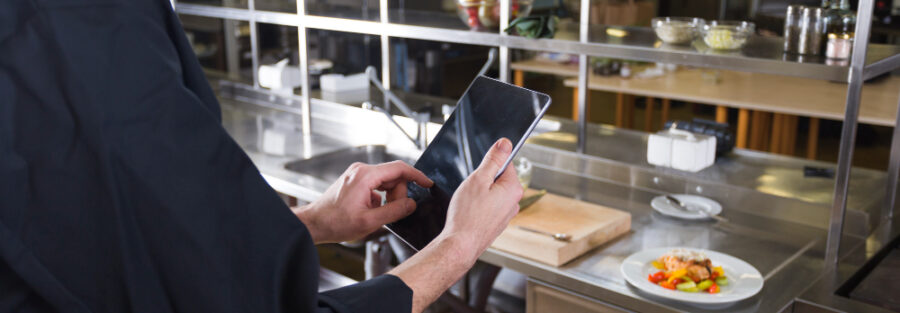Small restaurants often face difficulties in growing and expanding, especially with increasing competition and the presence of larger, more established restaurants. However, small restaurants can increase their profits through a restaurant management program or ERP system, which helps manage restaurant operations, such as inventory management, financial transactions, and more. This contributes to increased profits, reduced costs, and aids small restaurants in growing in alignment with Saudi Vision 2030.
What is a Restaurant Management Program or ERP System?
An ERP system is a software designed to manage a wide range of restaurant-specific operations. It provides a comprehensive solution to manage all aspects of restaurant operations and offers various tools serving different business areas, such as menus, inventory management, recipe management, cost control, human resources, finance, accounting management, and more.
Why Do Small Restaurants Need a Restaurant Management Program?
ERP systems help restaurants increase operational efficiency, boost profits, and reduce costs through the following:
1. Increasing Operational Efficiency
Restaurant owners can use an ERP system to standardize data formats across all departments, including menu items and pricing, accounting programs, supplier information, and employee data.
This helps organize workflows and improve collaboration between different departments, which in turn helps streamline restaurant operations.
Additionally, the ERP system automates tasks and reduces the need for manual data entry, minimizing human errors, boosting efficiency, and saving costs. It also contributes to enhancing the customer experience.
The integrated Point of Sale (POS) system within the ERP provides clear data on sales, inventory, kitchen operations, and human resources, offering a clear view of needs and financial resources. This enables quick decision-making to grow small restaurant businesses faster compared to those that do not rely on an ERP system.
2. Increasing Profits
ERP systems offer insights by analyzing data on the most and least profitable days of the year, the most popular and least popular dishes, and more. This can help direct efforts towards maximizing profits.
Additionally, these insights can help managers design special offers based on customer preferences, ensuring an increase in restaurant profits.
3. Secure Transactions
The ERP system ensures safe management of restaurant transactions. It reduces unauthorized transactions and potential fraud risks by up to 100%, minimizing financial loss and protecting the restaurant’s financial transactions.
4. Inventory Management
A restaurant management program helps track your inventory and monitor the quantities of items in stock. Running low on certain items can upset customers who may not find their preferred items on the menu.
On the other hand, having an excess of food stock can lead to spoilage, especially if it is surplus and not needed, causing waste and financial losses.
Therefore, the program tracks and reports data, including stock levels, shortages, excess inventory, and resource replenishment schedules, ensuring that the inventory meets the needs without overstocking or understocking.
How to Choose a Restaurant Management Program
When selecting a restaurant management program or ERP system, it should meet the specific needs of your restaurant and help achieve more profits while reducing costs. Here are some factors to consider before choosing a restaurant management program:
1. Automating Routine Tasks
The program should assist in automating routine tasks, such as inventory management, order processing, and others. This reduces the time spent on manual data entry, decreases human errors, enhances work efficiency, and allows you to focus on delivering excellent customer service.
2. Simplifying Business Management
The ERP system should make managing your restaurant easier while also keeping your customers happier. The program ensures smooth operations, protects against unsafe transactions, and provides data-driven decisions that help you make better, faster decisions to improve customer experiences and increase profits.
3. Making Your Life Easier
Certainly, you don’t want to track every detail of your restaurant’s management manually, as it would take too much time, increase stress, and perhaps prevent you from focusing on what matters most, which may lead to a poor customer experience.
Thus, the ERP program you use to manage your restaurant should simplify inventory management, staff management, and other time-consuming tasks, helping streamline the management process, provide excellent customer service, and give you extra time.
Local Success Stories with Fodo®
Fodo® has successfully helped many restaurants expand their operations, increase profits, reduce costs, and enhance work efficiency, resulting in a unique customer experience and excellent service.
Some success stories with Fodo® include:
- Warak Enab Restaurant: It started with only 4 branches but expanded to 11 branches after using Fodo®.
- Oshal Restaurant: Successfully opened a new branch after using Fodo®.
Al Barni Karan Gulf in Dammam: Started with one branch and opened a second branch


